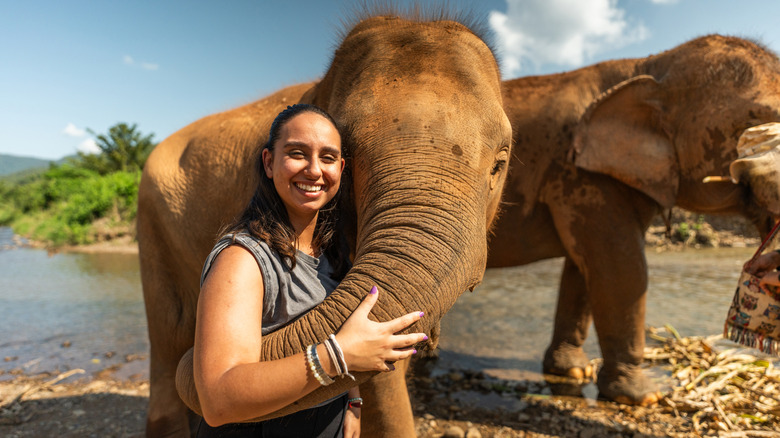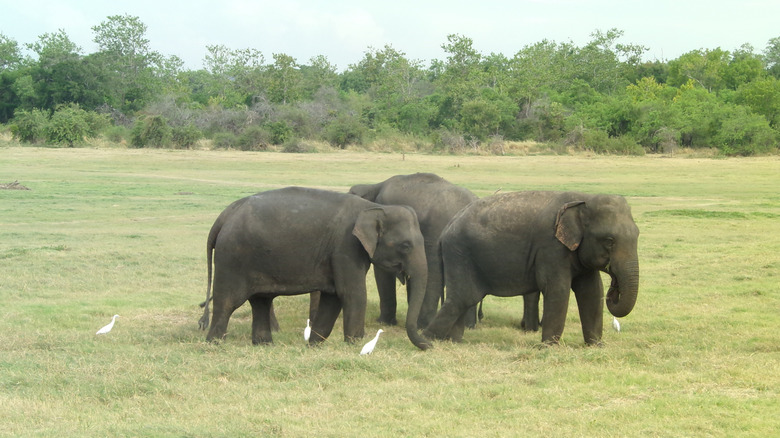Do Elephants Understand How To 'Speak' To Humans? Here's What We Know
Elephants are among the most intelligent creatures on the planet. They use long sticks to scratch their bodies when their trunks can't reach, use palm fronds as fly swatters, and recognize their reflections in mirrors. Studies and observations reveal that they also have the ability to communicate with humans beyond just responding to training cues. No, elephants can't literally speak like trained parrots can or reply to questions the way trained apes do (whether parrots can actually understand what human words mean is another topic). They can, however, recognize and respond to certain human actions and sounds in both positive and defensive ways.
Channel 6 Network shared a video of a touching interaction between a man and two elephants. The clip shows a young elephant curiously approaching a man who's using a water hose. Seeing the calf's interest, he allows it to use its trunk to place the hose inside of its mouth for a much-needed drink. The calf's mother appears in the shot moments later and gently waves her trunk at the man, as if to say, "Thanks for helping my kid out, bruh. 'Preciate it."
This incident is just one of many caught on camera depicting a positive exchange between humans and pachyderms, but not every exchange is positive. While some humans show love to elephants by helping and caring for them, others harm and even kill them. A study in Africa proves that elephants can remember which specific humans pose a threat and respond to characteristics of those people when detected later.
Elephants can identify and respond to the voice of their enemies
The 2014 study, which took place in Kenya's Amboseli National Park, explored how elephants respond to human voices. Researchers recorded Kenyan men, women, and children saying a specific phrase about elephants in two languages: Maa (spoken by the Maasai) and Kikamba (spoken by the Kamba). The contrast was important because adult male Maasai men are known to spear elephants, while Kamba men, typically farmers, pose no threat to the animals.
The recordings were played from hidden speakers to 47 elephant family groups: one of a Maasai man, one of a Kamba man, and another of Maasai women and boys. When the elephants heard the voice of the Maasai man, they reacted defensively, gathering together and shielding their young. They responded more calmly when hearing the voice of Kamba men, Maasai women, and boys. This behavior proves that the elephants can distinguish language, gender, and age from just a voice and adjust their behavior accordingly.
Karen McComb, a behavioral ecologist at the University of Sussex in the United Kingdom, noted in a Science interview that older elephant matriarchs were especially skilled at this vocal discrimination. "They only retreated when faced with men's voices," she said. Elephants can't tell us in words when they feel threatened or grateful, but their body language speaks volumes about what they can understand and want us to know.
Interested in learning more about how wild animals and humans communicate? Check out the friendliest wild animals that love humans, or why having a pet otter might not be as fun as it sounds.

